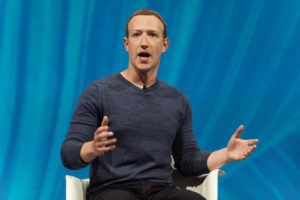
Mark Zuckerberg has laid off more than 11,000 Meta’s employees, about 13 per cent of its global workforce, in what he described as “some of the most difficult changes we’ve made in Meta’s history”.
In a well-trailed announcement, the chairman and chief executive of Facebook, WhatsApp and Instagram outlined his plans to make the business “leaner and more efficient” through spending cuts, a reduction in real estate, a hiring freeze and “a meaningful cultural shift in how we operate”.
“I want to take accountability for these decisions and for how we got here. I know this is tough for everyone, and I’m especially sorry to those impacted” he said.
Shareholders have accused the company of investing too heavily in its plans for a future in virtual reality, known as the Metaverse to the detriment of its core business.
Like other social media companies, it has suffered from a drop off in online advertising since the pandemic. Its most recent financial results showed that its profits had more than halved in the third quarter, the first time in almost a decade they had fallen for four quarters in a row.
In a statement, Zuckerberg said that he had misread the impetus that the pandemic had given to the technology industry, believing it would be “permanent” and that he had failed to foresee the gloomy economic picture.
“Not only has online commerce returned to prior trends, but the macroeconomic downturn, increased competition, and ads signal loss have caused our revenue to be much lower than I’d expected. I got this wrong, and I take responsibility for that,” he said.
Based in Menlo Park, California, Meta was founded by Zuckerberg, 38, in 2004 and now has 87,314 staff. The group changed its name a year ago to reflect its focus on the metaverse, a virtual realm deemed by many in Silicon Valley to be the internet’s next frontier.
It owns Facebook, Instagram and the messaging services WhatsApp and Messenger and has 2.93 billion daily active users across its platforms, which continue to generate almost all its revenue via advertising sales.
Acknowledging the pain of the redundancy process, he said all staff would keep access to their emails for the day “so everyone can say farewell”. US employees will be offered 16 weeks of severance pay and two extra weeks for every year of service and receive health insurance for six months while others around the world will receive a similar package.
Ben Barringer, equity research analyst at Quilter Cheviot, said: “It is clearly an unfortunate circumstance for those involved and at risk, however, the market will be largely pleased that Mark Zuckerberg is showing signs that he is not adverse to cutting costs rather than just spending to fund future projects like the Metaverse”.
The job cuts run counter to Meta’s recent investor presentation on 26 October, which said headcount at the end of next year would be approximately the same as it was at the end of the third quarter.
In a parting shot to the Metaverse naysayers, Zuckerberg concluded his statement by saying “I believe we are deeply underestimated as a company today. I’m confident that if we work efficiently, we’ll come out of this downturn stronger and more resilient than ever.”
Read more:
Mark Zuckerberg cuts 11,000 Meta jobs





